Klaus Hashagen
[b]Klaus Hashagen[/b] (31 August 1924, Central Java, Indonesia — 30 May 1998, Nuremberg, Germany) was a notable German electroacoustic and experimental music composer. He incorporated numerous styles and techniques in his music: choral, chamber pieces for solo instruments and orchestra, Chanson, "musique concrète," serialist and aleatoric elements, "radiophonic" compositions, spatial sound, and live electronics. Klaus co-founded [a658972] ensemble in 1968 with [a658984], served as the Founding Chairman of "Förderverein" (Friends' Association) at the [l1740537] and was Honorary Professor in electronic music and radiophony at [l514105]. Hashagen was born in a German merchant family and grew up in Semarang, Java, attending a Dutch elementary school. Klaus began playing piano when he was six, initially taught by his mother. The experience of Gamelan music also profoundly influenced him. In 1935, 11-year-old Klaus returned to Germany, attending a boarding school in Lengenfeld/Stein, Thuringia. Hashagen continued learning piano and other instruments, played in an amateur jazz band, and started tinkering with radio equipment. In 1943, Klaus Hashagen was drafted into the German Army. His battle wounds prevented Karl from pursuing a concert pianist career. Instead, Hashagen began studying music theory and choral conducting. In 1946, he transferred to a newly-opened [l513363], where Klaus learned composition from [a1353114] and [a4338507], further studied choral conducting with [a1047944], and also trained as a sound engineer under [a984563]. Later in his career, Hashagen studied serialist composition with [a355662]. After graduation, Klaus Hashagen had a brief internship at [l65815] in Cologne. From 1951 to 1966, he worked as a sound engineer, editor and radio composer at [l96971] in Hanover. In collaboration with [a2455982], Klaus established a studio for new music at [l318864]. They regularly hosted open concerts, and on the foundation of this series, [url=https://discogs.com/artist/4988200]Tage für Neue Musik Hannover[/url] was born. From 1966 until 1989, Klaus Hashagen served as the Music Department Head at [a2283051] in Nuremberg. He continued the work of his predecessor [a3633348], particularly with antique, folk and contemporary music. Hashagen actively promoted electronic music and audio-visual art throughout his career, organizing concerts and sound installations at [l657440] and other Nuremberg venues. Together with [a=Klaus Bernbacher], [a1353108], [a8000668] and [a211158], Klaus Hashagen established the German division of [a998654] and directed International Summer Courses for the institution at [l1842492] castle. Klaus Hashagen's first compilation appearances happened in the late 1960s/early '70s, most notably on [i][r=1359483][/i] LP, which opened [l7703]'s "Serie II" on German modern classical music. Around 1974, Klaus released [i][r=1815586][/i] LP, a collection of his solo compositions. Notably, it was the only and the first-ever electronic music title on [l207573] except for five rare and sought-after [a=Roland Kayn] boxsets between 1977 and 1984. The album featured one of Hashagen's regular collaborators, a percussionist [a610801].

Heider Stahmer Karkoschka Hashagen
Ars Nova Ensemble Nürnberg Spielt Werke Von Heider* / Stahmer* / Karkoschka* / Hashagen*
1983
Thorofon, Capella (4)
LP, Album
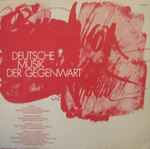
Deutsche Musik Der Gegenwart Serie II/1
Klaus Hashagen / Werner Heider / Werner Jacob / Bertold Hummel
1971
Deutsche Grammophon
LP
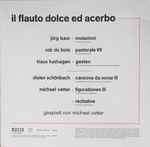
Il Flauto Dolce Ed Acerbo
Jürg Baur / Rob Du Bois / Klaus Hashagen / Dieter Schönbach / Michael Vetter

Percussion Und Elektronik
Klaus Hashagen
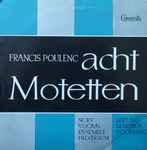
Acht Motetten
Francis Poulenc - NCRV Vocaal Ensemble Hilversum*, Marinus Voorberg
1964
Camerata (2)
10", Album
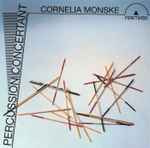
Percussion Concertant
Cornelia Monske
1992
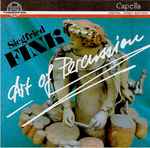
Art Of Percussion
Siegfried Fink
1990
Thorofon, Capella (4)
CD, Album, DDD
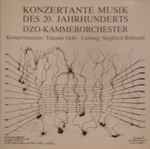
Konzertante Musik Des 20. Jahrhunderts
DZO-Kammerorchester* Konzertmeister: Takashi Ochi Leitung: Siegfried Behrend
1989
Pro Viva
CD, Album

24 Stücke Im Freien Stil Op. 31, 1-24 = 24 Pieces In Free Style = 24 Pièces En Style Libre
Louis Vierne - Günther Kaunzinger
1989
Koch Schwann Musica Mundi
2xCD, Album

Première Symphonie Pour Grand Orgue Op. 14 = Erste Sinfonie Für Orgel = First Symphony For Organ / Deuxième Symphonie Pour Grand Orgue Op. 20 = Zweite Sinfonie Für Orgel = Second Symphony For Organ / Pièces En Style Libre Op. 31, 1-10 = Stücke Im Fr
Louis Vierne - Günther Kaunzinger
1987

Troisième Symphonie Pour Orgue Op. 28 = Dritte Sinfonie Für Orgel = Third Symphony For Organ / Quatrième Symphonie Pour Grand Orgue Op. 32 = Vierte Sinfonie Für Orgel = Fourth Symphony For Organ / Pièces En Style Libre Op. 31, 11-18 = Stücke Im Frei
Louis Vierne - Günther Kaunzinger
1987

Jugend Musiziert - Preisträger 19. Bundeswettbewerb 1982
Various
1983
Not On Label
LP

Klang Und Zeichen 3
Various
1981
Schwann Hören & Lernen
4xLP, Comp + Box, Wit
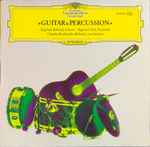
»Guitar & Percussion«
Siegfried Behrend & Siegfried Fink & Claudia Brodzinska-Behrend
1970

Drums In Action
Siegfried Fink
Capella (4)
LP

Freu Dich, Erd Und Sternenzelt
Niedersächsischer Singkreis, Ein Instrumentalkreis* , Leitung: Willi Träder
Camerata (2)
7", EP

Heimat Im Lied - MIt Reif Und Kaltem Schnee
Niedersächsischer Singkreis, Willi Träder
Camerata (2)
7", EP

Wenn Am Sonntagabend Die Dorfmusik Spielt....
Various
Polydor
10", Comp

Divertimento / Kleine Musik Für 2 Blockflöten Und Streicher
Gerhard Maasz, Kammermusikkreis Ferdinand Conrad
Camerata (2), Camerata (2)
7", EP

Heimat Im Lied - Ein Volksliedsingen Mit Willi Träder
Niedersächsischer Singkreis, Rupenhorner Singkreis* , Leitung: Willi Träder
Camerata (2)
12x7", EP + Box

Von Gold Ein Ringelein
Niedersächsischer Singkreis, Ein Instrumentalkreis* , Leitung: Willi Träder
Camerata (2)
7", EP

Im Ländlichen Jahr
Niedersächsischer Singkreis, Ein Instrumentalkreis* , Leitung: Willi Träder
Camerata (2)
7", EP

Der Tag Bricht An
Niedersächsischer Singkreis, Ein Instrumentalkreis* , Leitung: Willi Träder
Camerata (2)
7", EP

Komm, Herzensfreud
Niedersächsischer Singkreis, Ein Instrumentalkreis* , Leitung: Willi Träder
Camerata (2)
7", EP

Schöne Sommerzeit
Niedersächsischer Singkreis, Ein Instrumentalkreis* , Leitung: Willi Träder
Camerata (2)
7", EP
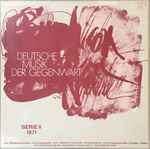
Deutsche Musik Der Gegenwart Serie II 1971
Various
1971
Deutsche Grammophon
5xLP + Box
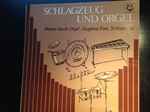
Schlagzeug Und Orgel
Werner Jacob, Siegfried Fink
Christophorus
LP, Album
Meditation
Klaus Hashagen
percussion VI
Klaus Hashagen
mobile szenen I
Klaus Hashagen
K. Hashagen: Meditation
Klaus Hashagen
... Trip In The Air ...
Klaus Hashagen
...trip in the air...
Klaus Hashagen
Melodie II für Kammerensemble
Klaus Hashagen
Cymbalon
Klaus Hashagen
Percussion VI
Klaus Hashagen
Giorno per giorno - XI
Klaus Hashagen
Giorno per giorno - IV
Klaus Hashagen
Giorno per giorno - III
Klaus Hashagen
Giorno per giorno - II
Klaus Hashagen
Giorno per giorno - VI
Klaus Hashagen
Giorno per giorno - VIII
Klaus Hashagen
Giorno per giorno - V
Klaus Hashagen
Giorno per giorno - X
Klaus Hashagen
Giorno per giorno - I
Klaus Hashagen
Giorno per giorno - VII
Klaus Hashagen
Giorno per giorno - IX
Klaus Hashagen
